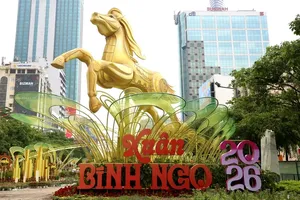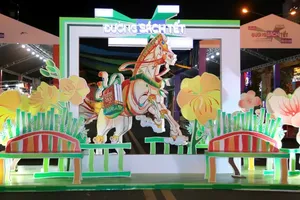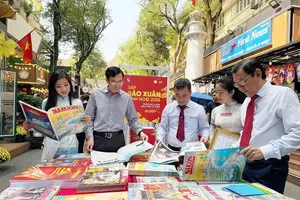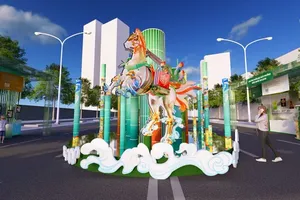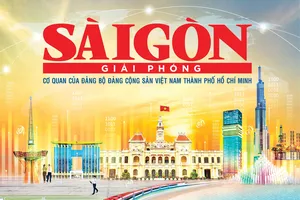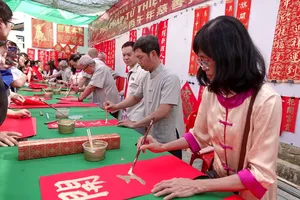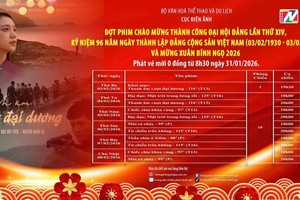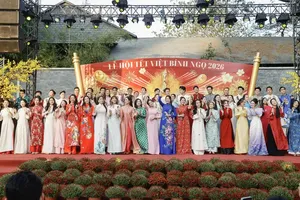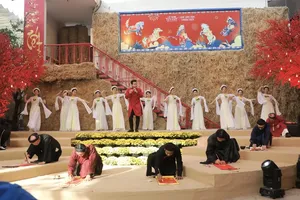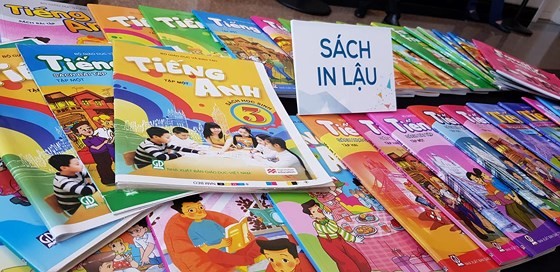
In order to raise social awareness on anti-piracy in publishing, the embassy and the publishing house organized the Workshop on Anti-Piracy in publishing (under the Bilateral UK - Vietnam Fund of the Foreign Commonwealth Office and the VEPH anti-piracy fund).
The organizers wanted to call for the public attention to have solutions to put an end to illicit book printing. Media enhanced popularization of the problem to raise people’s awareness of consequences of fake books and how fake books can be issued.
Chairman of the Vietnam Publishing House Nguyen Duc Thai said the development of printing and issuance of fake book in the country has been complicated lately causing concern in the printing houses.
For instance, inter-department inspectors have lately seized more than 72,000 fake textbooks at a bookstore in the central province of Binh Dinh.
The publishing house’s statistic has showed education books make up large quantity in illicit books. Undetected violating companies have devil-may-care attitude to continue earning profit whereas managing bodies have had no effective measures against the problem.
Accordingly, Mr. Thai supposed to have contribution of many forces including governmental competent agencies, publishing houses and other units. Fighting illicit books needs synchronous measures, he stressed.
In Hanoi, pirated books are sold publicly in streets Tran Quoc Hoan, Pham Van Dong, Lang while they are sold in streets Nguyen Huu Canh, Pham Van Hai, Dien Bien Phu and Tran Huy Lieu in Ho Chi Minh City.
Representatives of publishers showed their concern on the problem because it takes a long time to publish a book, but in 30 seconds, the book is on bookshelves in book-piracy stores or websites; therefore, they craved governmental managing bodies to have more effective solutions for the problem to save true authors and publishers in the country.
One of the cause piracy can thrive is that the present legal system has no tough sanction to deter people from committing the crime. Most pirated books are reference books especially English books for huge profits.
According to Nguyen Van Phuoc, director of Tri Viet (First News) Book Company, making and consuming illegally printed books hurt sales of originals. The company has around 1,000 valuable books and 400 of them are best sellers; however, 686 of them have been printed illegally.
He added whenever a copyrighted book becomes popular it is copied by others publishers for printing, which cheats consumers.
Deputy Director of the Authority of Publication, Printing and Distribution Nguyen Ngoc Bao admitted for years, illegal book printing has developed complicatedly in the S-shaped country.
Violators have employed various tricks to cope with competent agencies’ punishment. They have not only infringed locally-made books but also foreign-made kinds.
Mr. Bao said rife copyright violations has a negative effect on the economy by reducing sales in the industry and many other facets and on authors who will not be able to continue writing because they will be unable to make a living.
Worse, it damaged Vietnam’s image in the world because Vietnam has signed Berne Convention for the Protection of Literary and Artistic Works.

